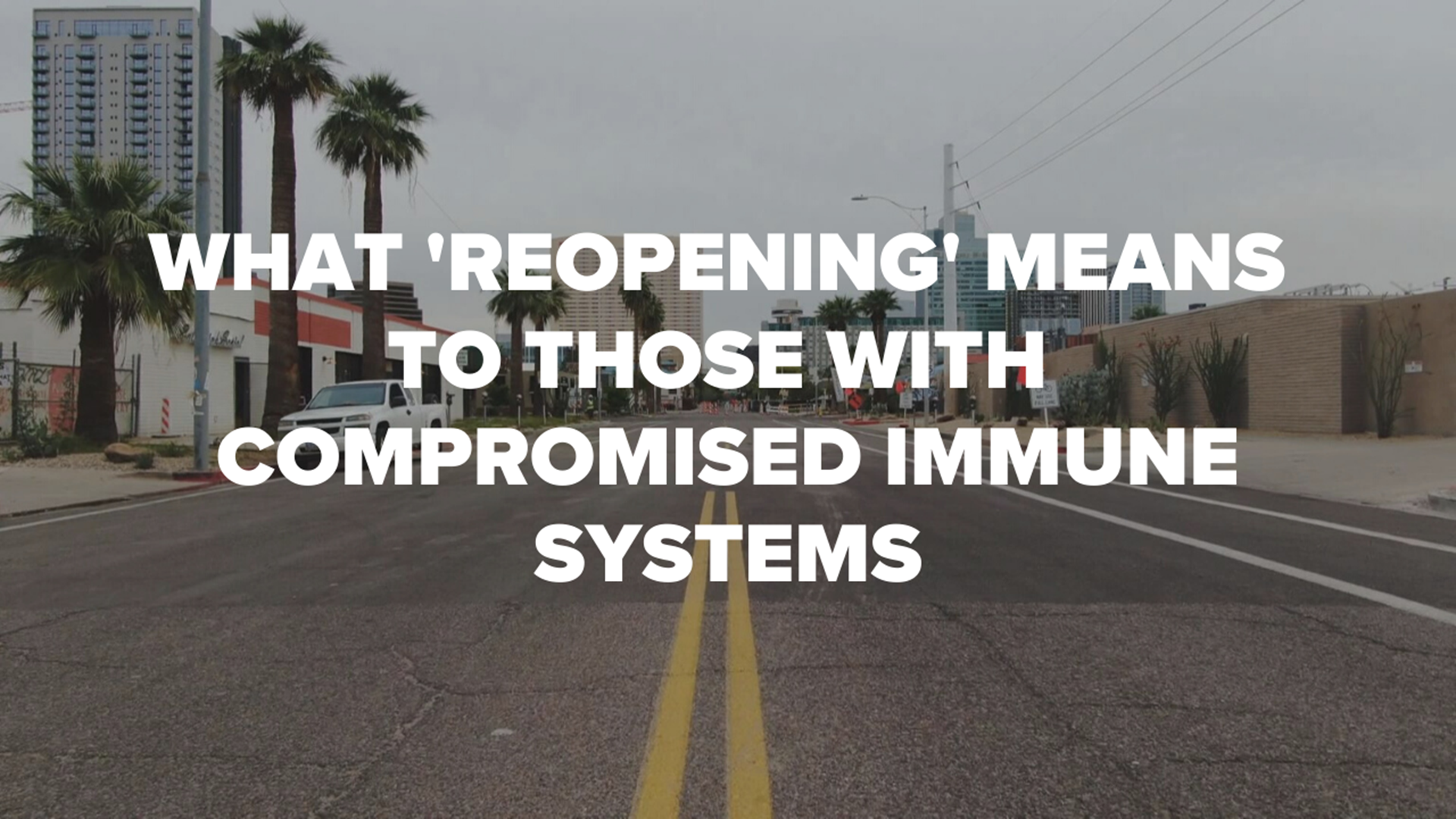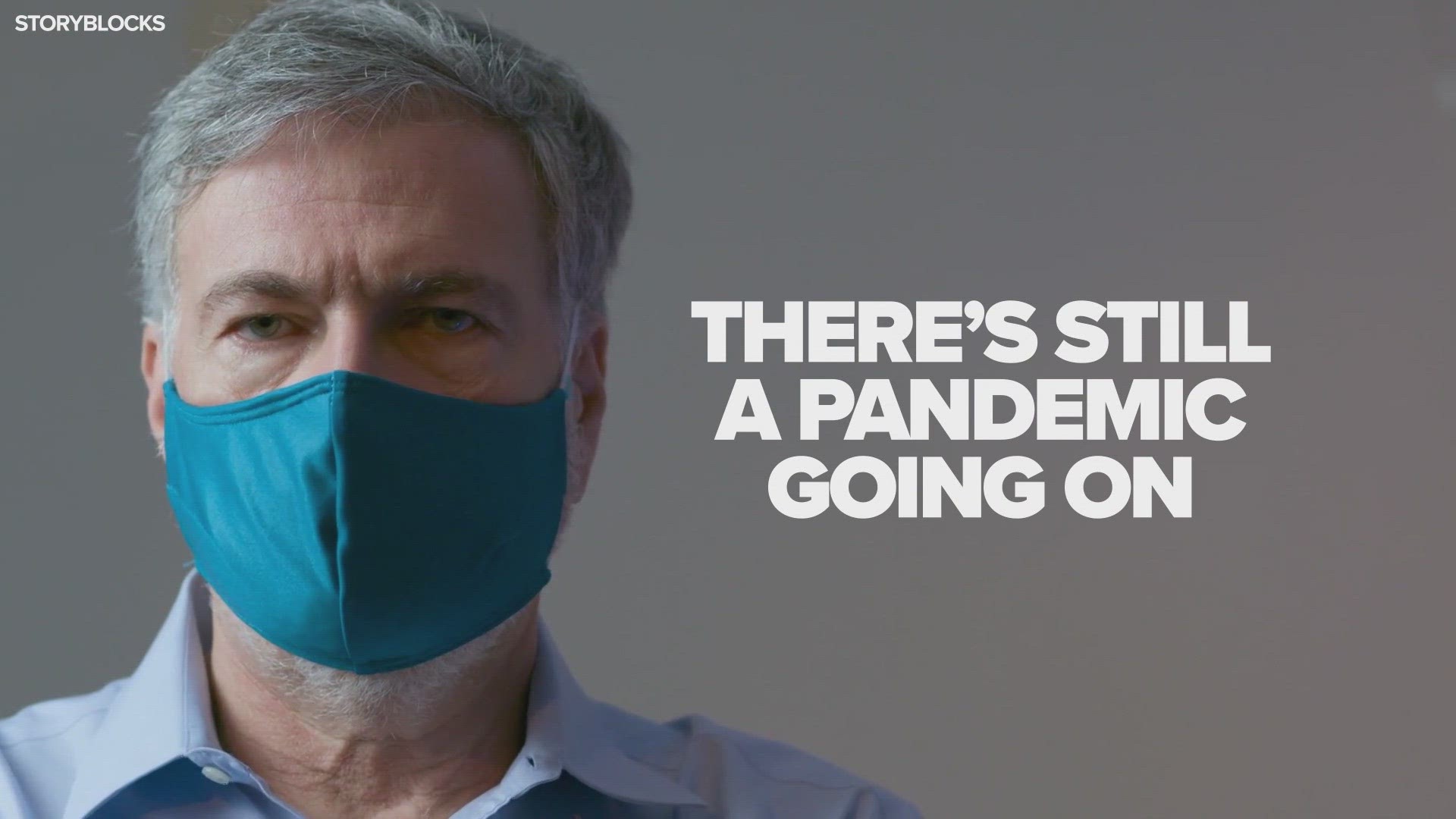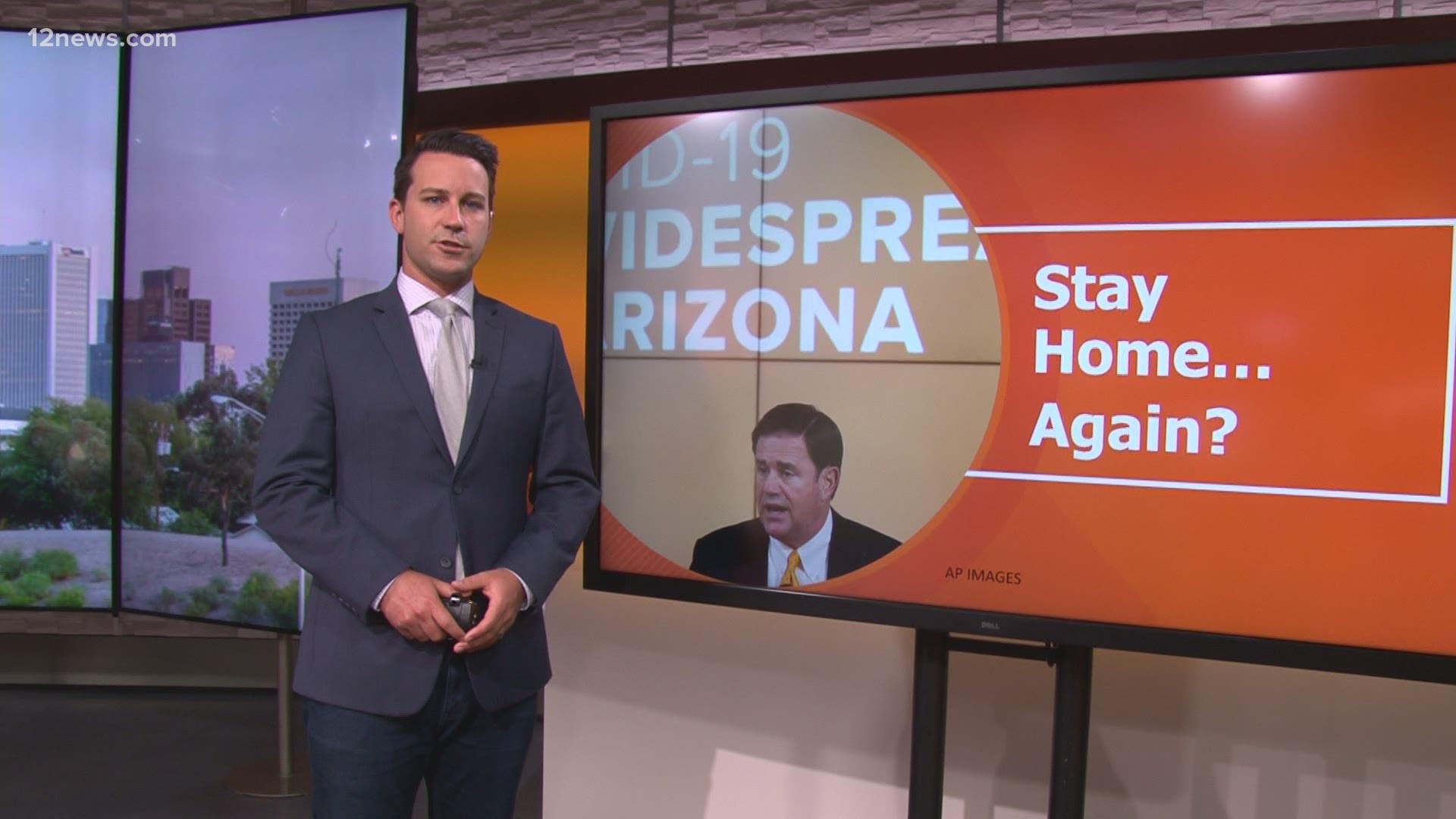PHOENIX —
The coronavirus pandemic has changed the lives of people across the world. Social distancing and quarantines have become part of our new “normal” as health officials look to stop the spread of the virus.
Over the past few months, people remained in their homes and kept their distance from others in an effort to stop the spread of COVID-19. And now, some states, Arizona included, are starting to reopen businesses as the fight against the disease continues. But not without new guidelines to help ensure the safety of those looking to return to public establishments.
While some are returning to our old “normal” and choosing to return to patronize businesses and restaurants, those with compromised immune systems may still be hesitant to join the “reopening” trend and stay home.
“What it means to be immunocompromised… there’s either medication that can make you immuno-suppressant or there’s a number of autoimmune disorders as well,” said Dr. Shad Marvasti, a local doctor and assistant professor at the University of Arizona’s medical school in Phoenix.
“If you have a chronic illness, the better control you have over that disease, the more likely you are to be in a better position to survive a COVID-19 infection,” he added.
Dr. Marvasti added that chronic conditions like high blood pressure, diabetes, obesity, heart disease and cancer can put people at a higher risk. According to a report on the National Center for Biotechnology Information website, nearly half (approximately 45%, or 133 million) of all Americans suffer from at least one chronic disease and the number is growing.
Before the coronavirus pandemic began, Taylor Wilson said she had her Crohn’s disease under control. Now the coronavirus outbreak has added a whole new level of concern.
“Once coronavirus hit, I pretty much don’t leave the house unless it’s for doctor’s appointments or things I can’t get out of,” said Wilson. “When I come home, I’m instantly jumping in the shower, making sure everything is cleaned off, sanitizing everything.”
Wilson, 24, is the Program Supervisor at Arizona Disabled Sports and said she never leaves the house without her N95 mask. But for some with chronic health conditions, it may be difficult to wear any face masks.
Michael Christiansen is 40 years old and has dealt with asthma his entire life. Due to the lung condition, it’s difficult for him to wear masks, so he relies on others in public to abide by social distancing guidelines.
“I can barely breathe in a mask,” said the online bank customer service representative. “So I try and stay physically distanced from people when I am out in public.”
Christiansen also said he has a roommate who is high risk so hand sanitizer use and staying clear of those who may be sick are now part of his routine. But for model and philanthropist Camerone Parker, she decided to avoid leaving her house unless absolutely necessary. She said she has been quarantined at home since March 4.
Parker was diagnosed with Multiple Sclerosis in 1998 and has ongoing heart issues that make a coronavirus diagnosis potentially deadly.
“I’m not able to see my parents,” Parker said hesitantly. “I get emotional about it because I can’t hug them.”
For now, Parker remains quarantined in her home to stay safe from the coronavirus. She said with her current health issues, making it through the pandemic without getting infected relies heavily on the actions of others.
“Getting through this virus… My life is really dependent on others wearing masks and being safe,” she implored.
And she’s not the only one with hesitation to return to public activities. Gold Canyon resident Kim James is a kidney transplant recipient and has a pacemaker, so the coronavirus had him afraid of what would happen if he was infected.
“When this first started I thought… Man, I’m gonna be a goner,” James said referring to the initial influx of cases among senior and elderly citizens in the state.
He continued to share his hesitation to go out in public and said he can’t fathom why some people don’t understand the high risk of infection among those with compromised immune systems.
“I take 141 pills a week. I’ll hand you my pills and you take those pills and see what I have to go through to stay alive,” he proclaimed. “Some people just don’t seem to take it seriously, it’s an ‘it’s not going to happen to me’ attitude.”
Anger appears to be a shared emotion for those I talked to as people ignored social distancing guidelines and went out in public without masks once the stay-at-home order was lifted.
Kim added that he and his wife, Veronica, are avid travelers and had to cancel an upcoming trip abroad due to the coronavirus pandemic. He said it might be years before they feel safe traveling again.
For now, cases continue to surge in Arizona as Governor Ducey reiterates the importance of social distancing and wearing mask in public. And for those like Taylor, Kim and Cameron, they'll continue to practice caution when leaving their homes amid the COVID-19 pandemic.



